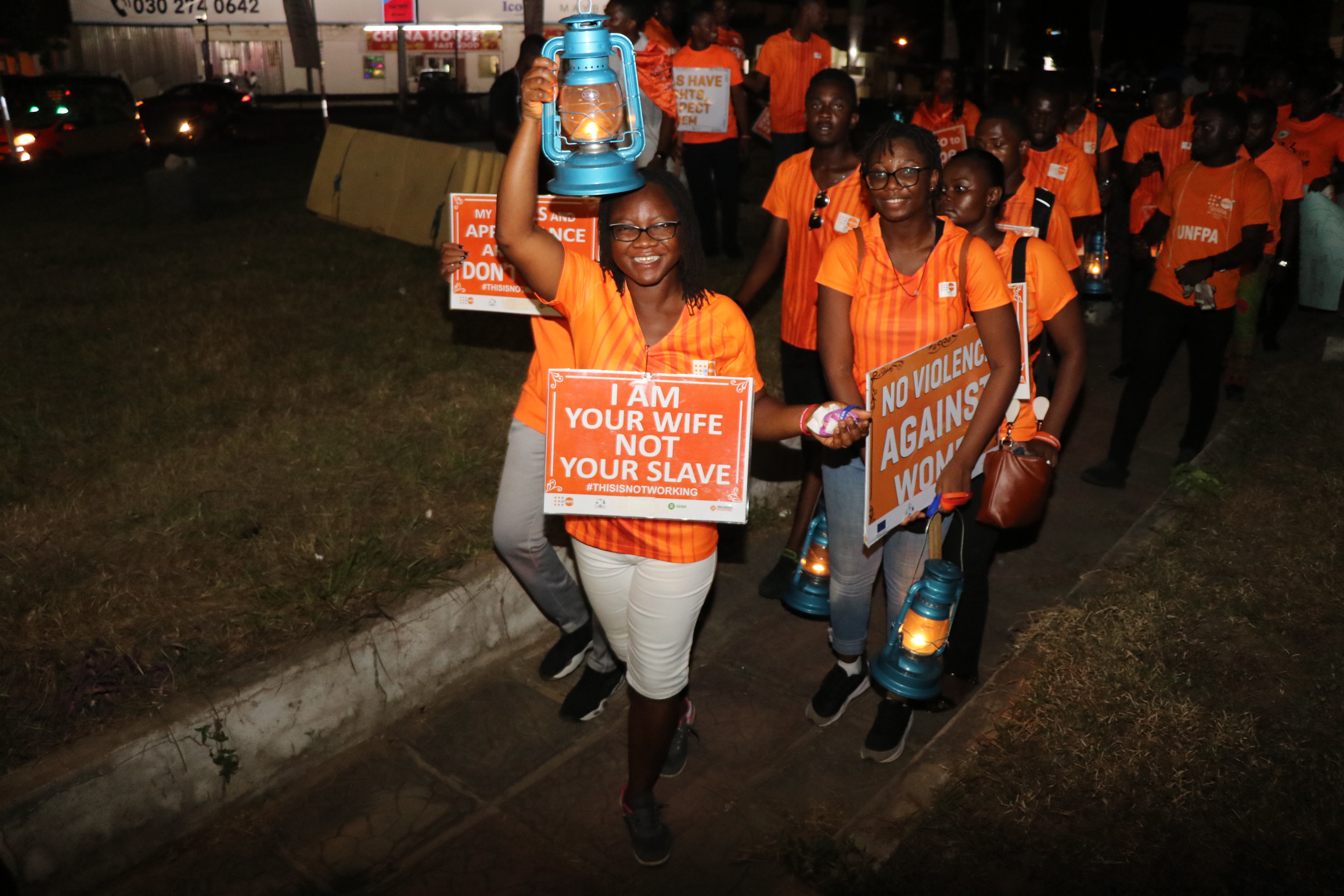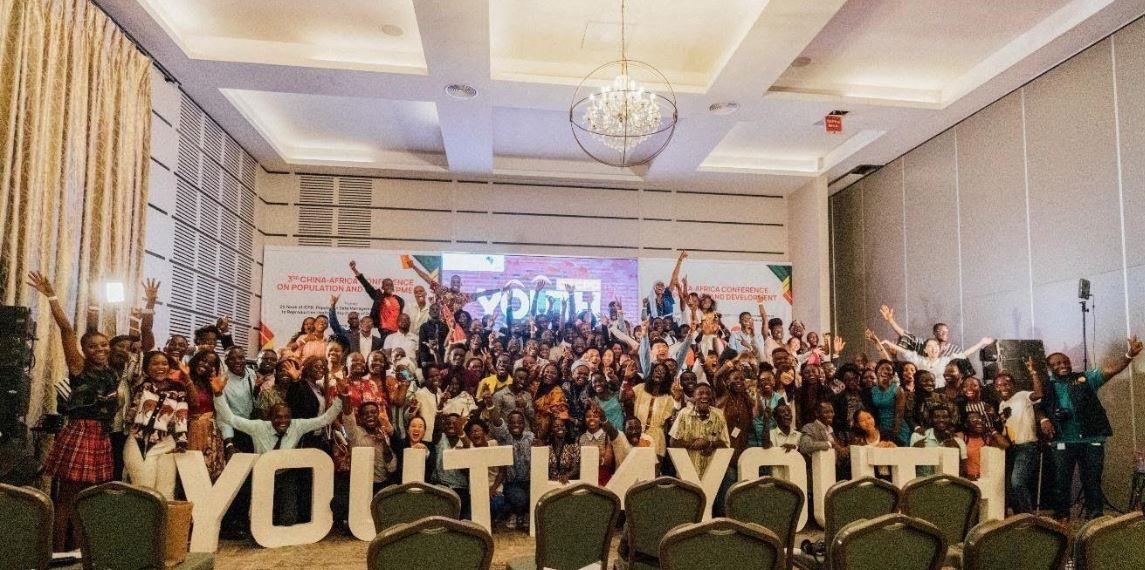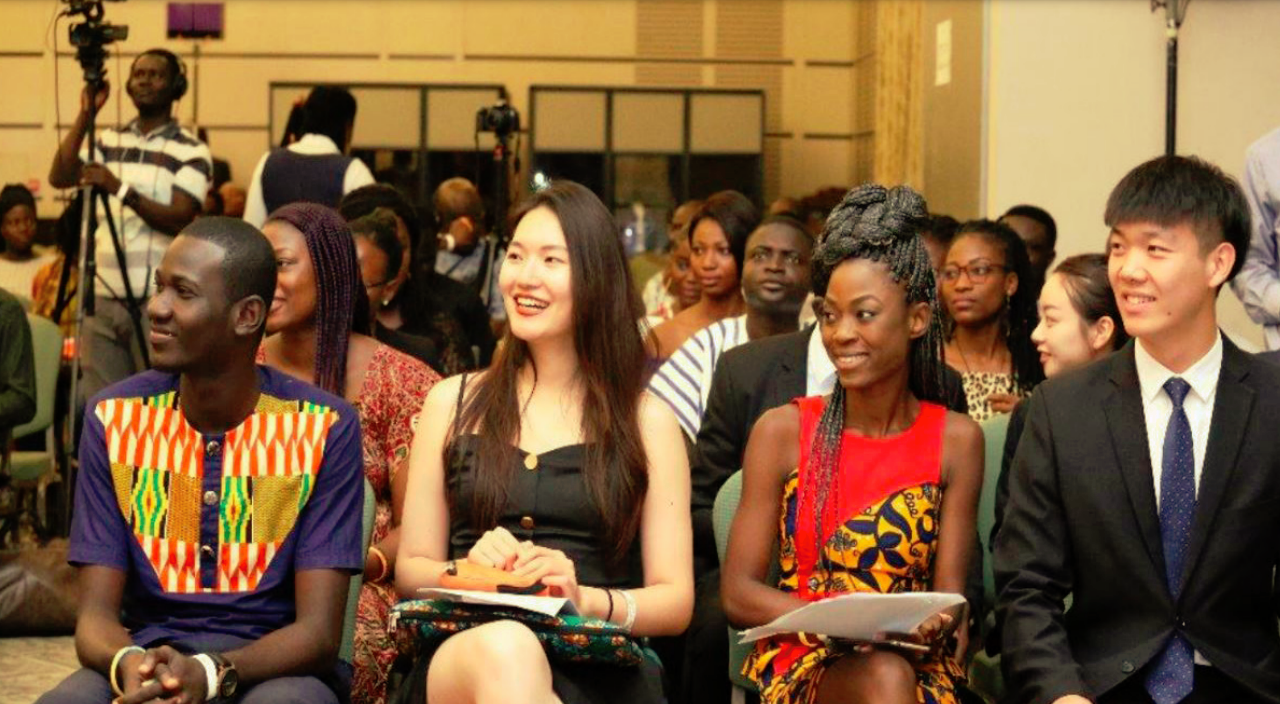 A Youth4Youth Forum for Dialogue and Ideating Solutions
Bringing together Africa, China and other partners through a conference platform for youth leadership and engagement
A Youth4Youth Forum for Dialogue and Ideating Solutions
Bringing together Africa, China and other partners through a conference platform for youth leadership and engagement

Challenges
African youth are among the world’s most vulnerable groups. Characteristic of most youth around the world, they are often excluded from policy and decision-making. Young women are more disproportionately affected due to socio-cultural factors that impede their participation, relative to their male counterparts. There is a growing need to address their limited participation in governance as well as the absence of youth-friendly spaces that can also provide access to basic services, including sexual and reproductive health. The inadequacy of these conditions for young people often result in poor reproductive health outcomes such as child marriage, obstetric fistula, teenage pregnancy and HIV among others.
In China, comprehensive sexuality education and youth-friendly sexual and reproductive health services for its young people are limited in coverage and content. Similar to Africa, the youth are largely excluded in decision-making processes, especially those from marginalized communities. The rights of persons with disabilities (PWDs) and LGBTQI to comprehensive SRH services remain largely neglected.
Young people from the African continent and China are faced with similar social and economic challenges that prevent them from realizing their full potentials. They need avenues and platforms to express their views, discuss and create solutions, as well as form strategic and collaborative alliances, locally and internationally, in order for their voices to be heard more loudly, consistently and meaningfully.
UNFPA Ghana, UNFPA China, AfriYAN Ghana, China Youth Network, Ministry of Planning, Ghana, China Family Planning Association, Beifang International Education Group (a Chinese private sector company and a partner with UNFPA China), NDPC, Ghana, NPC, Ghana
Towards a Solution
This South-South Cooperation brought together two giants – Africa and China by providing a platform for young leaders to showcase and explore their aspirations and innovative ideas to make a strong case for inclusion of youth at all levels of society. Youth leaders came from Ghana, China, Benin, Burkina Faso, Cameroun, Chad, Ivory Coast, DRC, Ethiopia, Nigeria, South Sudan, Morocco, Kenya, Zambia, Malawi, Eswatini, and Uganda. The Conference, held in 2019, had participants Youth Leader Fellows supported by and through partnerships among UNFPA Ghana, UNFPA China, AfriYAN Ghana, China Youth Network, the China Family Planning Association, Beifang International Education Group, and the Ghana Ministry of Planning, National Development Planning Commission (NDPC) and National Population Council.
The core intention of the ‘Youth4Youth’ Forum was to bring forward youth perspectives on the global development agenda in the context of Africa and China. Through multi-stakeholder consultations, the organizers of the Africa-China Conference on Population and Development provided young people with avenues to lead their own dialogues, foster relationships and build networks, and create opportunities for growth and development.
This first Youth4Youth Forum was convened on 23-26 June 2019 in Accra, Ghana as part of the 3rd Africa-China conference hosted by the Government of Ghana through the Ministry of Planning and the National Population Council. It was designed specifically to (1) Create a youth-led avenue for dialogue; (2) Improve young people’s awareness of Programme of Action of the International Conference on Population and Development (ICPD) and of the Sustainable Development Goals (SDGs); (3) Provide a platform to showcase youth-led interventions and innovations, and (4) Build networks to influence national decisions towards the realization of gender equality. UNFPA Ghana and the China Country Office served as convenors of this event, in addition to providing technical and financial support.
The Forum attracted participation of 345 young leaders from 17 countries in Africa, plus China. The implementation process for the Forum consisted of several pre and post phases, ensuring at every stage that inputs of young people are fully reflected. This participatory approach also ensured diversity of in-person and virtual attendees to the Forum which included young people from rural areas, marginalized sectors, those living with disability as well as those out-of-school.
As a lead convenor, UNFPA Ghana worked with several youth groups and youth-led civil society organizations like the Youth Action Movement of the Planned Parenthood Association of Ghana (PPAG) and Curious Minds Ghana. At the helm of this mobilization were the Fellows of the Youth Leaders Fellowship Programme of UNFPA Ghana, who helped put together the content and structure of the Forum. In addition to facilitating visa requirements, UNFPA Ghana also arranged educational visits for the Chinese youth participants to the University of Ghana and the Disability Village.
The Forum took advantage of innovative social media to elicit the views of and interact with young people through video submissions, an online platform and a “Tweet Meet” session (utilizing Twitter. These videos were compiled into the State of the Youth Address (SoYA) that was further deliberated upon during the Forum. An exhibition session enabled young entrepreneurs to showcase their innovations in technology, arts and crafts. To bridge the gap in access to youth-friendly SRH services, mobile health booths were also set up. Video documentation and written reports of the Forum are available online.
The Forum Declaration has been widely disseminated and used as a tool to engage relevant stakeholders. As a result, there has been heightened energy among the youth organizations. In Ghana, for example, young people provided inputs to Ghana’s ICPD commitments that were subsequently presented at the Summit in Nairobi on 12-14 November, 2019. Many of the youth participants also joined a youth-led national march during the observance in Ghana of the 16 Days of Activism Against Gender-Based Violence. It is hoped that future China-Africa Conferences on Population and Development will integrate a similar youth forum component.
Contact Information
Countries involved
Supported by
Implementing Entities
Project Status
Project Period
URL of the practice
Primary SDG
Secondary SDGs
Similar Solutions
| NAME OF SOLUTION | Countries | SDG | Project Status | |
|---|---|---|---|---|
A Billion Brains: Smarter Children, Healthier Economies High Level Meeting on South-South Cooperation for Child Rights |
Benin, Burkina Faso, Cameroon, Chad, China, Côte D'Ivoire, Democratic Republic of the Congo, Eswatini, Ethiopia, Ghana, Kenya, Malawi, Morocco, Nigeria, South Sudan, Uganda, Zambia | 17 - Partnerships for the Goals | Completed | View Details |
Accelerating the Implementation of African Union Treaties in São Tomé and Príncipe South-South learning from the Beninese judicial system’s experience in the application of human rights treaties to its national law |
Benin, Burkina Faso, Cameroon, Chad, China, Côte D'Ivoire, Democratic Republic of the Congo, Eswatini, Ethiopia, Ghana, Kenya, Malawi, Morocco, Nigeria, South Sudan, Uganda, Zambia | 05 - Gender Equality | Completed | View Details |
Accelerating the Transformational Shift to a Low-Carbon Economy in Mauritius Towards supplying 35 percent of the country’s energy needs with renewables by 2025 |
Benin, Burkina Faso, Cameroon, Chad, China, Côte D'Ivoire, Democratic Republic of the Congo, Eswatini, Ethiopia, Ghana, Kenya, Malawi, Morocco, Nigeria, South Sudan, Uganda, Zambia | 05 - Gender Equality 09 - Industry, Innovation and Infrastructure 13 - Climate Action | Ongoing | View Details |
Accelerator Labs Network Following collective intelligence methods to address emerging sustainability challenges and the growing demand for local solutions |
Benin, Burkina Faso, Cameroon, Chad, China, Côte D'Ivoire, Democratic Republic of the Congo, Eswatini, Ethiopia, Ghana, Kenya, Malawi, Morocco, Nigeria, South Sudan, Uganda, Zambia | 08 - Decent Work and Economic Growth 13 - Climate Action | Ongoing | View Details |
Accessibility of Financial Services and the Private Sector in Africa Maximizing the impact of financial cooperation on economic development and industrialization in Africa |
Benin, Burkina Faso, Cameroon, Chad, China, Côte D'Ivoire, Democratic Republic of the Congo, Eswatini, Ethiopia, Ghana, Kenya, Malawi, Morocco, Nigeria, South Sudan, Uganda, Zambia | 08 - Decent Work and Economic Growth | Completed | View Details |


